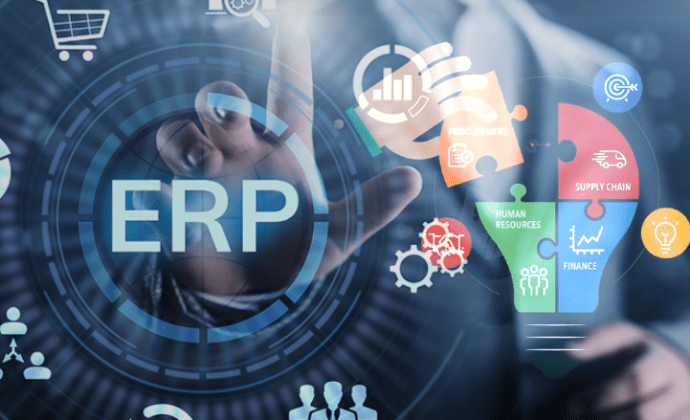Maintaining the efficient operation of your organization’s moving elements is essential for managing cash flow effectively. Manual procedures start to fail and have an adverse effect on cash flow when your company grows in size and the number of clients and orders it receives. The use of cloud ERP can enhance cash flow. Particularly when it comes to cloud-based ERP, enterprise resource planning systems (ERP) sometimes have some misconceptions about pricing and what size firms may use it effectively. The beauty of ERP is that it can grow with your company in terms of both scope and cost. In the just-in-time supply chain management environment of today, it is critical for every firm to determine the most effective means of assuming full control of its business operations related to efficient cash flow management. We’ve compiled a list 5 of reports, procedures, and techniques readily accessible by ERP that have a significant influence on cash flow in order to help you understand why ERP may increase cash flow: Automate Workflows Businesses don’t have to wait for the subsequent billing cycle to issue invoices when using an automated system. This is due to the fact that all of your receivables and collection information are kept in one place. There has never been a simpler way to view the status of your money thanks to the user-friendly dashboards. Businesses can start invoicing as soon as the task is finished by switching from a monthly billing cycle to an on-demand one. Businesses can get paid faster by issuing invoices more quickly. A firm may expand with an integrated ERP system without having to recruit more staff, and you can also establish predetermined rules for the operations so you can relax knowing that business is operating smoothly without adding to your labor expenditures. Reports on Purchasing and planning Inventory management and materials resource planning (MRP) capability are features of ERP systems that make it simpler for buying personnel to understand demand. You may determine what you need to restock, what you already have in excess of, and the ideal time to do it with the help of purchase and planning reports. Whether the demand stems from Sales Orders, Work Orders, or Replenishment requirements, the buying staff will know what to buy and how much. Also, these data will assist in avoiding purchasing mistakes like overordering and missing an order, which would delay delivery. Take control of overdue invoices Knowing which invoices are unpaid is simple with an integrated ERP system. Companies can utilize dashboards to view what is due, how often payments are made, and any information related to the collection process. Unquestionably, keeping on top of previous payments helps to maintain positive cash flow. Makes inventory management easier A crucial aspect of inventory management is visibility. ERP systems give firms access to real-time inventory updates and regulated buying. You may spend money wisely on the stock you need with this efficient inventory planning without unintentionally creating a surplus. Implementing Lean Processes Using the consolidated data it provides, an ERP solution enables you to monitor current and future cash flow while giving you a better understanding of your financial situation. An ERP offers reports firms want to gain information on particular transactions and financial patterns and comprehend broad swings in cash flow. Understanding and comprehending your company’s cash flow is important for both small businesses and large conglomerate corporations. The most effective approach to assist a small firm in doing that is by using an ERP system. You may access process management professionals when you collaborate with a group of ERP implementation specialists like SMB Solutions who have a track record in your industry. This will guarantee that your systems are optimized for cash flow effectiveness. Our comprehensive, cloud-based ERP system was created primarily for the needs of small- to medium-sized distributors, field service providers, and light manufacturers. We integrate all of your data and give you all the resources you require for better business process management and industry best practices for more efficient day-to-day operations.
How Can Erp Improve Cash-flow?



